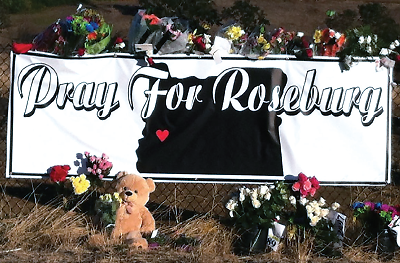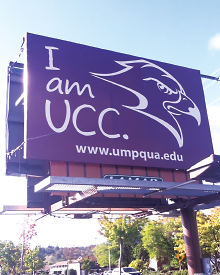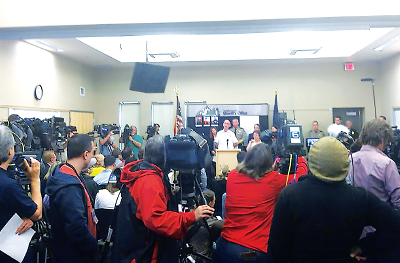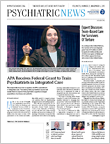As the immediate tragedy of the shooting at Umpqua Community College that left eight students and one professor dead in Roseburg, Ore., receded last month, the longer-term needs of the small rural community began to emerge.
“This is a tightly knit community, so the impact was greater,” said family practice doctor Christine Seals, M.D., medical director of the Umpqua Health Alliance and president of Community Health Alliance, the local mental health provider in Roseburg.
“Everyone knew someone at that college,” said Seals in an interview. “There is not a single person or patient I have seen since the shooting who was not linked in some way to someone who lost their life or was injured.”
Access to mental health care in rural Oregon can be difficult enough without a mass casualty event.
There are just five psychiatrists in the community, plus several more at the Department of Veterans Affairs Medical Center in the town. The VA medical center was able to provide some short-term, humanitarian help during the initial community response.
However, what is needed now are not short-term visits by outside clinicians but a longer commitment by mental health professionals of any stripe who can deliver trauma-informed care to those who need it.
“Most people can give a day, but not three or four weeks,” said Seals.
Through Laurence Colman, M.D., M.P.H., chief medical officer at Greater Oregon Behavioral Health in Portland, Seals requested help from the Oregon Psychiatric Physicians Association (OPPA) and the Oregon Council of Child and Adolescent Psychiatry.
“Dr. Seals approached me looking for clinicians with particular training in acute cognitive-behavioral therapy, cognitive-processing therapy, and other trauma-focused training and experience to help out as the initial two weeks of support from the Red Cross and the federal government ran out,” Colman told Psychiatric News. The U.S. Public Health Service sent a team. Its members offered support to local practitioners and some assessment help but not clinical services.
“It’s unfortunate that many people coming into the county to offer a one-time clinical service meet the community’s needs far less than one or a few clinicians who can dependably be available on an ongoing, weekly basis,” said Colman.
OPPA is also thinking about the longer term. Daniel Bristow, M.D., the organization’s public information chair, drove to Roseburg on the Friday night following the tragic shootings.
“I soon found out that simply being there, meeting people, sharing stories, and finding out how to go forward would be the most valuable contribution,” wrote Bristow, a psychiatrist with Kaiser Permanente in Portland, Ore., in an email.
Bristow emphasized the need to engage the news media to help educate the public about the psychological consequences to the community. OPPA already had in place an outreach and media protocol for responding to public events with psychiatric implications. That plan served to educate members of the media and the public about depression after Robin Williams’ suicide and about addiction following the legalization of recreational marijuana in Oregon.
After the Roseburg tragedy, Bristow and other members of OPPA provided media interviews by phone or in person, offering the public useful information and avoiding sensationalism or speculation, he said.
Risk for the traumatic aftereffects of the Roseburg shooting may be heightened because so many people have connections to the event, as Seals noted.
“But the healing process may also go better because of the support of the community as well,” she said.
Even before the tragedy, Seals said that she was trying to recruit one general and one child psychiatrist to the area. She noted the positive professional opportunities in a smaller medical system that is receptive to innovation.
A clinician in any field looking to make engaged, integrated care a reality might do worse.
“We have had a tragedy here whose impact will be felt for 10 or 20 years,” she said. “I want psychiatrists who will play a role in an innovative, open-minded, creative way. This is a place where you can make a difference.” ■
Information on the Umpqua Health Alliance can be accessed
here.



